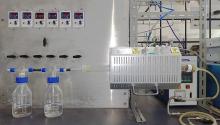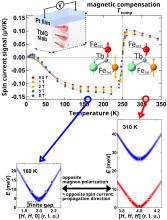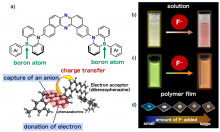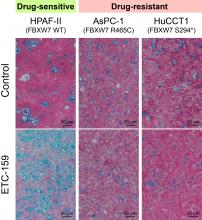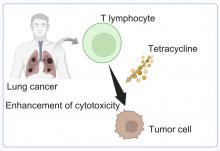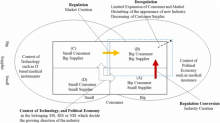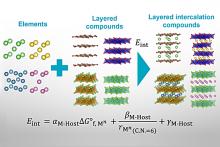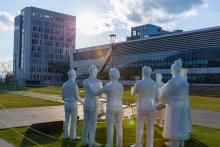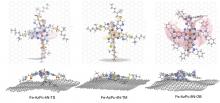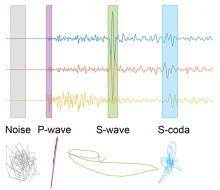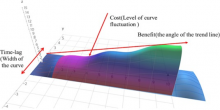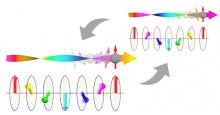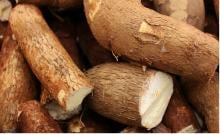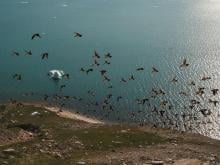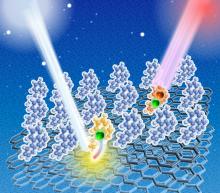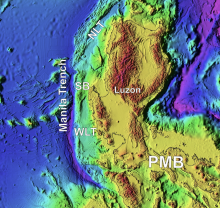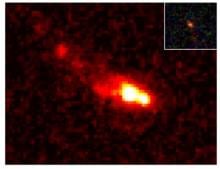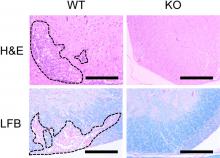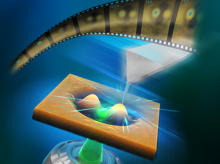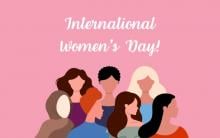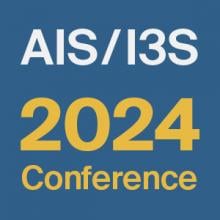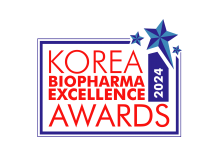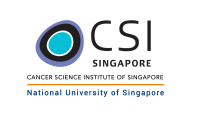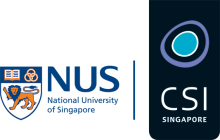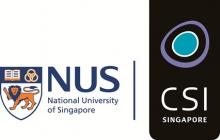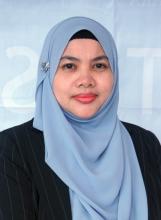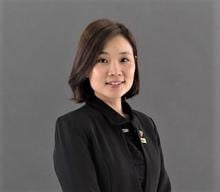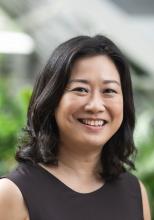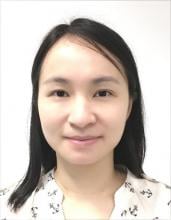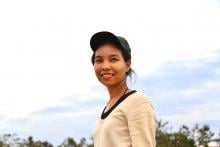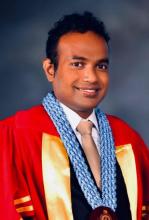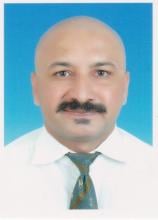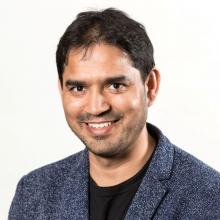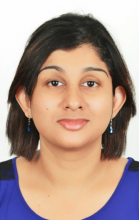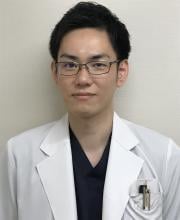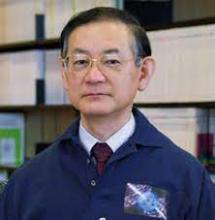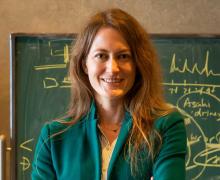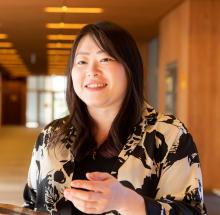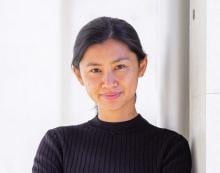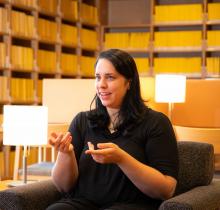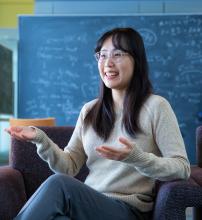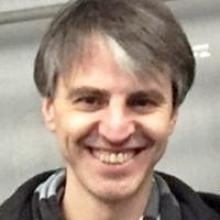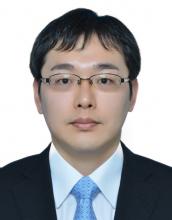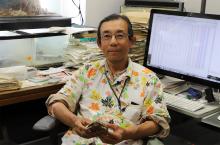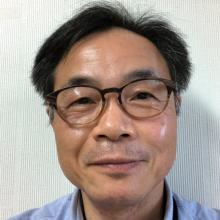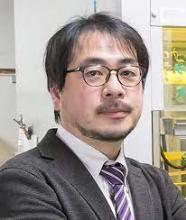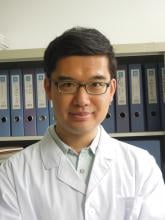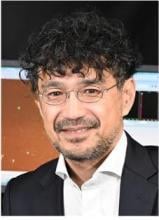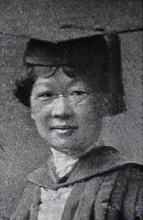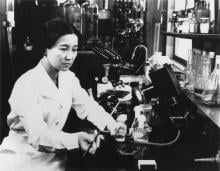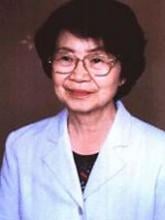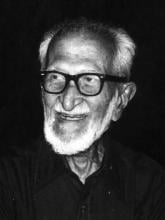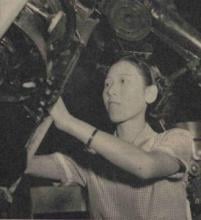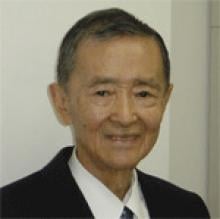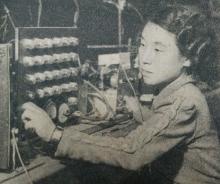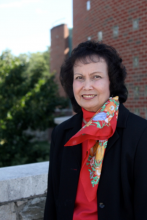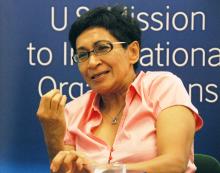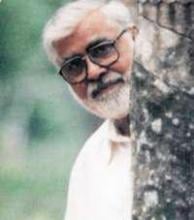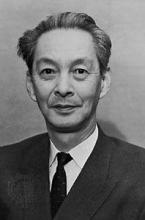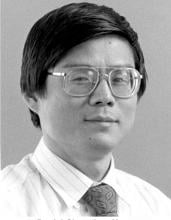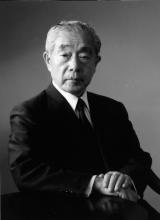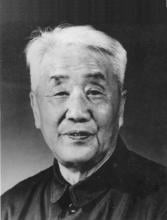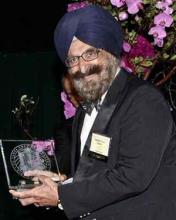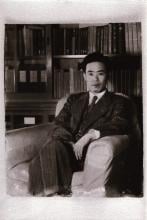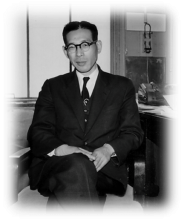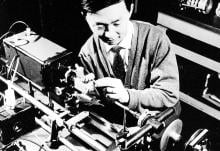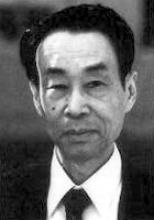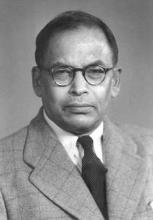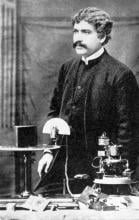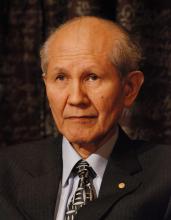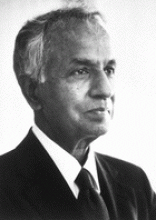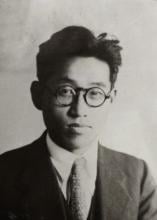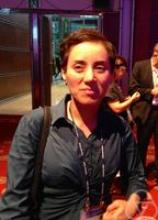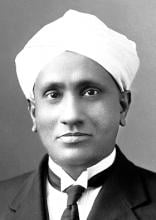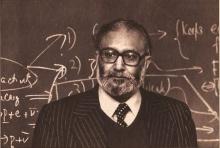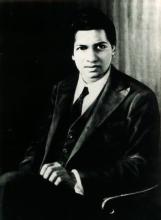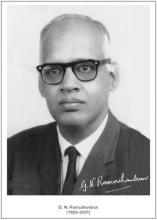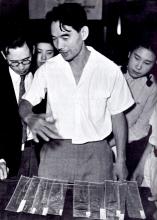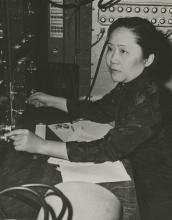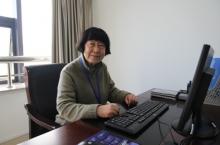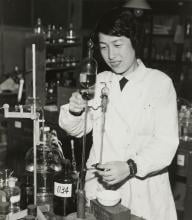Science
News
23 Apr 2024
Using neutron scattering and voltage measurements, a group of researchers have discovered that a material's magnetic properties can predict spin current changes with temperature. The finding is a major breakthrough in the field of spintronics.
12 Apr 2024
Zika virus vaccine targets brain cancer, 120-year quest to farm lobsters, Arctic nightlife bursts with sound, Eating a robot, Molecular orientation is key & New treatment for ALS and dementia. Read all in the latest Editor's Choice.
12 Apr 2024
Researchers from Osaka University and collaborating partners have synthesized triarylborane (TAB) compounds that exhibit unusual optical responses upon binding to certain anions. They also synthesized thin polymer films that incorporate the TAB and retain the sensing as well as the light emission properties of the TAB. This work is an important advance in plastic research and has applications in analyte sensing as well as electronic display technologies.
11 Apr 2024
Duke-NUS study reveals why some pancreatic and colorectal tumours resist targeted anti-Wnt drugs and suggests how to overcome it, offering new hope to patients with fully treatment-resistant cancers
11 Apr 2024
Researchers from the Institute of Industrial Science, The University of Tokyo, find that providing lab-grown ‘cerebral organoids’ with connections similar to those in real brains enhances their development and activity
10 Apr 2024
Researchers from Osaka University found that tetracycline antibiotics stimulate T lymphocytes in the body’s immune system to attack and destroy cancer cells. The antibiotics work by blocking the action of galactin-1, a protein made by cancer cells that suppresses the immune system. Identification of this new target may lead to the development of novel cancer immunotherapies.
08 Apr 2024
Genetic analysis finds evidence suggesting that acoustic fat bodies in the heads of toothed whales were once the muscles and bone marrow of the jaw.
04 Apr 2024
- Indiscriminate deregulation could root out the possibility of growing new industries
- The team suggested that transforming or setting regulations optimized for the emergence and growth of new industries is the key point for future government policies to nurture new industries
04 Apr 2024
Researchers from Osaka University and Imperial College London have used operando optical spectroscopy in conjunction with other spectroscopic techniques to follow the oxygen evolution reaction (OER) for an iridium oxide catalyst. Using complementary techniques to probe the catalytic process at different pH values allowed them to observe the effect of the extended environment around the intermediate species involved. The findings are expected to contribute to optimizing the OER for green hydrogen production.
03 Apr 2024
New survey from Springer Nature shows that amongst researchers in Japan, approximately a third of the respondents are unsure how to share their research beyond academic publications and presentations, indicating the need for further support for their research to reach and have influence on the wider community
03 Apr 2024
Researchers from the Institute of Industrial Science, The University of Tokyo and collaborating partners have created guidelines for the design of intercalated materials, which will accelerate research on energy storage, electronics, and more
01 Apr 2024
Researchers from Osaka University found that exposure to environmental carcinogens and psychological distress significantly decreases happy life expectancy, a measure of the lifespan during which an individual experiences subjective emotional wellbeing. These findings suggest that developing public health policies to reduce exposure to these chemicals could help people live longer, happier lives.
29 Mar 2024
Hosting of the WEEF-GEDC is expected to serve as a great opportunity to showcase the quality and achievements of engineering education in universities in Korea, including DGIST, on the global stage
29 Mar 2024
The lipids in some herbal teas have been identified in detail for the first time, preparing the ground for investigating their contribution to the health benefits of the teas.
28 Mar 2024
Tohoku University researchers have created a reliable means of predicting the performance of a new and promising type of catalysts. Their breakthrough will speed up the development of efficient catalysts for both alkaline and acidic environments, thereby saving time and effort in future endeavors to create better fuel cells.
26 Mar 2024
Scientists successfully addressed mathematical challenges in conventional Spectral Matrix analysis, used to analyze three-component seismic signals, by introducing time-delay components. The new technique enables the characterization of various polarized waves and the detection of seismic events that have previously gone unnoticed by conventional methods. These findings pave the way for improving a variety of applications, including earthquake detection.
26 Mar 2024
Numerical basis found for picosecond laser endpoints in effective clinical treatments with fewer complications
24 Mar 2024
- Presents eight models of micro-open innovation dynamics, suggesting strategies for corporate open innovation
- Published in the Technological Forecasting and Social Change (TFSC) journal, among the top 1% in the global innovation economy field
22 Mar 2024
A team of researchers has proposed a new concept for magnet-based memory devices, which might revolutionize information storage devices owing to their potential for large-scale integration, non-volatility, and high durability.
19 Mar 2024
The 12th Starch Value Chain ASIA conference was held in Vientiane, at Crowne Plaza Hotel, from February 27 to 29, 2024. The conference encompassed four key themes: Asia’s starch markets, industrial and food-grade tapioca starch in Laos with expansion plans, sustainable climate-smart agri-technology for rice and cassava cultivation, and challenges for future growth in Asia's biogas-to-energy sector.
15 Mar 2024
Acoustic recordings of a colony of little auks reveal their nocturnal activities and offer valuable monitoring means for avian biology in the Arctic.
15 Mar 2024
Understanding electron behavior and surface structure of triphenylene thin film molecules deposited on graphite substrates under light irradiation
14 Mar 2024
Ancient Mars biomolecules, Gargling away bad bacteria, Molecule glasses magnify life-chemical observations, Cholesterol and cancer link, Quantum electronics leap, Plus our updated Experts for Media: Women list & Asia Research News 2024 is here. Read all in the latest Editor's Choice.
13 Mar 2024
Gas hydrates are great alternative energy sources but they could also harm us and the environment, note geologists from the University of the Philippines.
13 Mar 2024
An international research team have made unprecedentedly detailed observations of the earliest merger of galaxies ever witnessed. They suggest stars developed much faster and more efficiently than we thought. They used the James Webb Space Telescope (JWST) to observe the massive object as it was 510 million years after the Big Bang – i.e. around 13 billion years ago.
12 Mar 2024
A new study highlights a potential therapeutic target for immune-related disorders, such as multiple sclerosis and asthma.
11 Mar 2024
Researchers from Osaka University used tip-scan high-speed atomic force microscopy combined with an optical microscope to observe light-induced deformation of azo-polymer films. The process could be followed in real time, and the film patterns were found to change with the polarization of the light source. The observations will contribute to the use of azo-polymers in applications such as optical data storage, and the approach is expected to be useful across materials science and physical chemistry.
07 Mar 2024
In celebration of International Women's Day, we are putting the spotlight on women experts from various fields who are open to speaking with international media about their research and advocacies.
Events
01 Aug 2024
The AIS-I3S 2024 is a leading conference that brings together academic leaders, thought leaders, engineers, students, and visionaries from the growing network of sensors and AI communities.
13 Aug 2024
The Korea Biopharma Excellence Awards celebrate the achievements of biopharma experts/organizations in South Korea and East Asia who have made remarkable advancements in biologics, cell and gene therapy, and vaccine development throughout the years.

24 Aug 2023
Using Data for Sustainability: An evening of Short Talks and Networking
09 Aug 2023
The Malaysia Technology Expo (MTE) 2023: Advanced Healthcare and Life Sciences International Innovation Awards & Expo (AHLS IIAE) is set to take place virtually on 9-11 August 2023, bringing together the best and brightest minds from the healthcare and life sciences industries.
11 Sep 2023
Join us for the 𝟭𝟮𝘁𝗵 𝗜𝗻𝘁𝗲𝗿𝗻𝗮𝘁𝗶𝗼𝗻𝗮𝗹 𝗖𝗼𝗻𝗳𝗲𝗿𝗲𝗻𝗰𝗲 𝗼𝗻 𝗔𝗽𝗽𝗹𝗶𝗲𝗱 𝗦𝗰𝗶𝗲𝗻𝗰𝗲 𝗮𝗻𝗱 𝗧𝗲𝗰𝗵𝗻𝗼𝗹𝗼𝗴𝘆 (𝟭𝟮𝘁𝗵 𝗜𝗖𝗔𝗦𝗧 𝟮𝟬𝟮𝟯) hybrid conference, on 11-12 September 2023 in Penang, Malaysia.
With the conference theme of "𝗥𝗲𝘃𝗼𝗹𝘂𝘁𝗶𝗼𝗻𝗶𝘇𝗶𝗻𝗴 𝗦𝗰𝗶𝗲𝗻𝗰𝗲 𝗮𝗻𝗱 𝗧𝗲𝗰𝗵𝗻𝗼𝗹𝗼𝗴𝘆 𝗳𝗼𝗿 𝗮 𝗕𝗲𝘁𝘁𝗲𝗿 𝗪𝗼𝗿𝗹𝗱", 12th ICAST 2023 aims to bring together academics, researchers, practitioners, and industry experts to share their knowledge and experiences on the latest advancements, applications, and innovations in the field of science and technology. We invite submissions of original and innovative research in various fields of science and technology.
In addition to the technical program, the conference will also feature a 𝗙𝗥𝗘𝗘 𝘄𝗼𝗿𝗸𝘀𝗵𝗼𝗽 for all participants titled 𝗜𝗻𝘁𝗿𝗼𝗱𝘂𝗰𝘁𝗶𝗼𝗻 𝘁𝗼 𝗕𝗶𝗯𝗹𝗶𝗼𝗺𝗲𝘁𝗿𝗶𝗰 𝗔𝗻𝗮𝗹𝘆𝘀𝗶𝘀 𝘄𝗼𝗿𝗸𝘀𝗵𝗼𝗽, which will be delivered by Assoc. Prof. Ts. Dr. Aidi Ahmi, author of the books “Bibliometric Analysis for Beginners” and “Bibliometric Analysis using R (for non-coders)”.
Submit now at
http://icast.arms.org.my/openconf/
For more information, please visit our conference website at
http://icast.arms.org.my/
#ICAST #ICAST2023 #HybridConference #Callforpapers

17 Apr 2023
To achieve Net Zero, the governments of the UK and Singapore are targeting ambitious carbon reduction goals, and electromobility has emerged as a key strategy. Now, Newcastle University (UK) and ERI@N (Singapore) are jointly hosting an international event, known as the Electromobility symposium, in Singapore to debate and discuss experiences in implementing land transport electrification in Singapore and the UK, evaluate policy landscapes, and identify successes and obstacles to inform future strategies.
29 Oct 2022
SJF is a virtual multilingual global event where science journalists, writers, publishers, scientists, students, and academia can share new ideas and thoughts in science journalism.
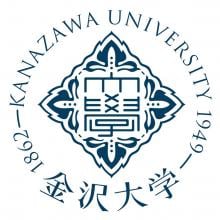
19 Sep 2022
The Nano Life Science Institute (WPI-NanoLSI) at Kanazawa University will hold a ‘Workshop on Computational Biophysics of Atomic Force Microscopy – A Lecture Course Approach’ 19-21 September 2022, online.
17 Oct 2022
The event is the first in the region focused on recognizing innovations, initiatives, programmes and ideas which contribute to sustainability, eradicating poverty, improving well-being, protecting our planet, and building peace and prosperity.
19 Apr 2023
The leading trade fair and think tank for global analysis, laboratory technology and biotechnology sector in Vietnam.

18 Aug 2022
Participatory Design Conference (PDC) is a world-leading venue and an ACM SIGCHI conference, bringing together the latest debates in the collaborative and equitable design of technology, services and socio-technical systems.
07 Nov 2022
FCS2022 is jointly organized by eight major research institutes in Singapore and includes a line-up of internationally renowned cancer experts. The conference converges the latest cancer discoveries around the world and promises ground-breaking and innovative insights into cancer research.

01 Mar 2022
The Nano Life Science Institute (WPI-NanoLSI) at Kanazawa University will hold their 5th NanoLSI Symposium 1-2 March 2022, online.
17 Jan 2022
World’s brightest minds converge at virtual summit to inspire young researchers and discuss key issues
09 Sep 2021
Earth-Life Science Institute (ELSI) will launch a new Master-PhD course on origin-of-life science and astrobiology at Tokyo Institute of Technology. The five-year ELSI course is open for domestic and international students who wish to tackle fundamental questions in natural science such as the origin and evolution of living planets. ELSI will provide financial support (as salary of a research assistant) for all the students, except for ones who are going to be supported by JSPS DC fellowships (Japan) or equivalent fellowships.
01 Nov 2021
We invite scientists, doctors, students and other delegates engaging in scientific research related to cancer to join us at Singapore’s preferred cancer conference.
24 May 2021
The webinar organised by Universities UK International (UUKi) will take place on Monday 24 May 2021 at 8:30-10:30am (UK time). The webinar focusses on Japan-UK research collaboration and is open to UK and Japan based researchers, and university research managers.

26 Mar 2021
Springer Nature and the University of Tokyo to hold SDGs Symposium 2021, “Interdisciplinary science solutions for food, water, climate and ecosystems Sustainable Development Goals”

09 Mar 2021
The SciREX Open Forum’s 10th session will invite Dr. Yoichiro Matsumoto who assumed the position of the 2nd S&T Advisor to Japan's Minister of Foreign Affairs as a speaker to talk about what we can see from the pandemic, how S&T Diplomacy should be in the ongoing pandemic, and what actually can be done.
12 Jan 2021
Organised by the National Research Foundation – Prime Minister’s Office, Singapore, the ninth edition of the Global Young Scientists Summit (GYSS@one-north) will take place 12 to 15 January 2021 as a virtual event.
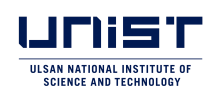
15 Oct 2020
The Science Walden Center of South Korea's Ulsan National Institute of Science and Technology (UNIST), in collaboration with Artist Jieun Gu exhibited an art work, along the Taehwa River in Ulsan, S. Korea.
02 Nov 2020
We invite scientists, doctors, students and other delegates engaging in scientific research related to cancer to join us at Singapore’s preferred cancer conference.
25 Jul 2020
The Singapore Science Festival (SSF) is an annual event celebrating the role that science, engineering, technology and mathematics plays in shaping our lives and sculpting
our future.
01 Oct 2020
The 6th annual RNA Biology Symposium jointly organized by the RNA Biology Centre of CSI Singapore (NUS), Skin Research Institute of Singapore (A*STAR), Duke-NUS Medical School, School of Biological Sciences (NTU) and Singapore-MIT Alliance for Research and Technology (SMART)
The Khwarizmi International Award (KIA) acknowledges the efforts made by researchers, innovators and inventors from across the globe and to appreciate their high quality research work and contributions to different fields of science and technology.

17 Aug 2020
The Nano Life Science Institute (WPI-NanoLSI), Kanazawa University, is calling for participants for 9th Bio-SPM Summer School (previously known as Bio-AFM Summer School)).
19 Mar 2020
Institute for the Advanced Study of Human Biology(ASHBi) holds the annual symposium with twenty-one speakers who are leading human biology including human development, genetics, and evolution.
26 Nov 2019
Interactive talk at the Singapore Science Centre, 26 November 2019, 2.30pm to 3.30pm
Researchers
Universiti Teknologi MARA (UiTM)
Norhafezah binti Kasmuri has obtained her Degree in Civil and Environmental Engineering from Universiti Kebangsaan Malaysia in 2001. She has received her Master of Science in Water Resources Engineering and Management (WAREM) from Universitat Stuttgart, Germany in 2004. She has completed her study of Doctor of Philosophy in Chemical Engineering from Swansea University, Wales, the United Kingdom in 2014. She has been serving UiTM since August 2014 as a senior lecturer at the School of Civil Engineering, College of Engineering, Universiti Teknologi MARA, Shah Alam.
Daegu Gyeongbuk Institute of Science and Technology (DGIST)
Professor Dae-hyun Nam is dedicated to advancing electrocatalysts for sustainable energy conversion and storage. By leveraging expertise in materials science, engineering, and chemistry, he aims to address pressing energy and environmental challenges, paving the way for a sustainable future.
Dr Sarkar is a senior research fellow at the Murdoch Children's Research Institute in Melbourne, Australia. She is
actively engaged in collaborating with academic and industry stakeholders and leads multiple projects for the development of novel therapeutics/vaccines to tackle antimicrobial resistance.
Ts. Uganeeswary Suparmaniam, AMIChemE (UK) is a multiple award-winning young scientist, sustainability advocate, and climate activist attached to the HICoE-Centre for Biofuel and Biochemical Research, Institute of Self-Sustainable Building, PETRONAS University of Technology, Malaysia.
Dr. Chong Li Choo is an accomplished academic, Associate Professor at Taylor's University, expert in food technology, and innovative product design. Award-winning researcher, director for Food Security & Nutrition Impact Lab, and impactful leader in the field.
Nanyang Technological University
Sierin Lim is an Associate Professor of Bioengineering at the School of Chemistry, Chemical Engineering and Biotechnology and the Associate Dean (Global Partnerships) at the Graduate College of Nanyang Technological University, Singapore (NTU). Her research group focuses on the design and engineering of biological entities for applications in health and the environment. She is the co-founder of Women@NTU, Society of Women in Engineering (SWE@SG) and Promotion of Women in Engineering, Research and Science (POWERS) programme.
A*STAR I2R
Dora is driving and leading the effort in the innovations of technologies and solutions to improve sustainability, livability, and productivity in built environment.
Chameera Udawattha, a pioneering architect and researcher, investigates eco-friendly construction materials, exploring alternative solutions for construction and building issues. His work promotes sustainable building practices.
Sarfraz Ahmed is working as a Scientist at Harvard Medical School's Mass General Hospital. His research interests include Diseases and Therapeutics especially focus on Cancer and Therapeutics, Cancer Immunology, Photomedicine, Photo compounds and Photodevices for Cancer, Cancer and Natural agents, Nanomedicine and Nanotechnology for Cancer, Drugs resistance, Microbiology (Bacteriology & Virology) and Drugs resistance
Universiti Brunei Darussalam
Afroz Shah is a Senior Assistant Professor of Structural Geology at the Department of Geosciences, Universiti of Brunei Darussalam (UBD). He is the Programme Leader of Geosciences. Shah completed PhD at James Cook University, Australia, in 2010, a post-doctorate at Earth Observatory of Singapore in 2013 and joined his first academic job as a Senior Lecture of Structural Geology at Curtin Sarawak, Miri, Malaysia, before joining UBD.
Universiti Sains Malaysia
Angeli Ambayya is a Scientific Officer (Ministry of Health, Malaysia). She is passionate about research in the field of hemato-oncology.
Prof. Ryo Katsumata specialized in clinical research within gastroenterology, particularly in neurogastroenterology. His focus revolves around understanding the brain-gut interaction and the pathophysiology of disorders like functional dyspepsia (FD) and irritable bowel syndrome (IBS) that involve the gut-brain connection.
Angel Investor and a Vision-driven entrepreneur/executive with career-long record of business growth and innovation.
Kavli Institute for the Physics and Mathematics of the Universe (Kavli IPMU)
Ken’ichi Nomoto is a visiting senior scientist at Kavli IPMU and Professor Emeritus at The University of Tokyo. He is one of the best experts in the world in astronomy and astrophysics, particularly on stellar evolution and supernovae. He was awarded the Order of the Sacred Treasure by the Japanese government in 2020.
Kavli Institute for the Physics and Mathematics of the Universe (Kavli IPMU)
Emily Nardoni is a Kavli IPMU Fellow and project researcher. She specializes in theoretical high energy physics, with her research focus on understanding the nature of quantum field theory (QFT).
Kavli Institute for the Physics and Mathematics of the Universe (Kavli IPMU)
Miho Katsuragawa is a specially appointed project researcher at Kavli IPMU. Her areas of expertise include experimental physics, detector/instrument development, medical application of gamma-ray imaging, and high energy astrophysics.
Kavli Institute for the Physics and Mathematics of the Universe (Kavli IPMU)
Jia Liu is the Director of the Center for Data-Driven Discovery and associate professor at CMB Group at Kavli IPMU. Her research integrates data science techniques in the study of large-scale structures of the universe (dark matter, halos, filaments, voids).
Kavli Institute for the Physics and Mathematics of the Universe (Kavli IPMU)
Elisa Ferreira is Assistant Professor at the Kavli IPMU and at the Institute of Physics of the University of São Paulo. Her research deals with the interface between cosmology, astrophysics, and high energy physics, focusing mostly on dark energy and dark matter.
Kavli Institute for the Physics and Mathematics of the Universe (Kavli IPMU)
Man Wai Cheung is a Project Researcher and the first Chien-Shiung Wu Prize Postdoctoral Fellow at KAVLI Institute for the Physics and Mathematics of the Universe (Kavli IPMU). Her research lies in the interplay between algebraic geometry, combinatorics and representation theory.
Dr Fabien Grasset is a Research Director at the Centre national de la recherche scientifique (CNRS) and currently serving as Director of Research for Rennes Institute of Chemical Sciences (ISCR). His areas of expertise include materials chemistry, solid-state chemistry, nanotechnology, nanoparticles, optical coatings and thin films.
Taishi Yokoi is an Associate Professor of the Institute of Biomaterials and Bioengineering at Tokyo Medical and Dental University. His research areas include biomedical engineering, inorganic compounds and inorganic materials chemistry.
Hokkaido University
Dr. Eisuke Hasegawa is an Associate Professor at the Graduate School of Agriculture, Hokkaido University, where he heads the Animal Ecology Laboratory. His research interests include animal ecology; evolutionary biology; natural selection; sociality; and ethology.
Dr. Yukio Yasui is an Associate Professor at Kagawa University. He has dedicated his research work to ecology, ethology and evolutionary biology studies, with his more recent work on the evolution of sex.
Tohoku University
Prof. Hiroshi Yabu is a Professor and Principal Investigator at the Advanced Institute for Materials Research (WPI-AIMR) at Tohoku University. His research interests include self-organization, biomimetics, and bio-inspired materials for energy and low environmental impacts.
Institute for the Advanced Study of Human Biology (ASHBi), Kyoto University
Dr Ashfaq Ahmad Shah 'اشفاک ' born on 6 June 1992, from south Kashmir, Doderkoot ددیرکوٹ Kulgam, Jammu and Kashmir, India is the infection immunity doctoral researcher at the Graphic Era (Deemed to be University), Dehradun, UK, India. Dr Shah is pursuing novel dimensions of infection immunity pertaining to the correlation and impact of phyto-immune components termed phytoalexins and phytoanticipins on the benign immune system of human beings. This parameter of immunology is termed phytoalexin-immunomodulation scrutiny. His area of interest lies in Preclinical and clinical studies, i.e. vaccine adjuvant development, development of anti-inflammatory and antimicrobial compounds, evaluation of antibiotic resistance, study of Immuno-modulatory activities, disease model studies, protease isolation against specific protein antigens, and the discipline of Kalology including tyrosinase inhibition, PPO inhibition, skin whitening agents, kerato-peeling etc. Dr Ashfaq is a Doctoral Researcher, Reviewer and Editorial member of several journals and books. He is having several publications in journals of national and international repute. So far he has published more than thirty scopus infection/immunology/pharmacology scientific papers, including Fifteen international book chapters and two international books. Mr Shah received the Young scientist award in August 2023 for his groundbreaking academic performance in the field of infection immunity. Mr Shah has also been an editor of Wikipedia pages in medical science since 2015 with more than 1000 edits in medical topics available to medical literature worldwide.
Dr. Zheng Chen is an environmental chemist and associate professor at Xi'an Jiaotong-Liverpool University. His research interests include nutrient recycling from agricultural waste, soil contamination and remediation.
Hokkaido University
Dr. Akira Kakugo is an Associate Professor at Hokkaido University. He has researched biomolecular motors and swarming of active matters.
Ilham Akhsanu Ridlo is an early-career researcher and assistant professor at Indonesia's Faculty of Public Health, Universitas Airlangga. He is a Ph.D. student at Institut für Kommunikationswissenschaft und Medienforschung (IfKW), Ludwig-Maximilians-Universität München. Ilham believes science communication is crucial in bridging the gap between research practice and health policy implementation. His research area concerns how scientists and journalists influence decision-makers to understand scientific uncertainty in public health.
Nanyang Technological University
Dr. Edison H. Ang has a background in materials science and engineering along with a diverse skill set. He completed his undergraduate studies, earning B.S. degrees, at Nanyang Technological University in Singapore in 2012. Later, in 2017, Dr. Ang received his Ph.D. from the same university. He gained additional experience as a Postdoctoral Fellow at the National University of Singapore from 2016 to 2017 and later served as a Research Fellow at Nanyang Technological University from 2017 to 2019. In mid-2018, he also took on a Visiting Scholar role at the Technical University of Munich in Germany.
Currently, Dr. Edison H. Ang serves as an Assistant Professor at the National Institute of Education/Nanyang Technological University.
His expertise encompasses various areas, including 2D Nanomaterials and Nanotechnology, Energy Storage and Conversion, Sensor Technology, Membrane Technology, Additive Manufacturing, Catalysis, Waste-to-Wealth, Surface Coating and Film, Circular Economy, Renewable Energy, Sustainability, and Chemistry and Chemical Engineering.
Giants in history
Chinese biochemist Chi Che Wang (1894 - 1979), one of the first Chinese women to study abroad, advanced to prominent research positions at American institutions including the University of Chicago and the Northwestern University Medical School.
Ruby Sakae Hirose (1904 – 1960) was a Japanese-American scientist whose research contributed significantly to our understanding of blood clotting, allergies and cancer.
Chinese electron microscopy specialist Li Fanghua (6 January 1932 – 24 January 2020) facilitated the high-resolution imaging of crystal structures by eliminating interference.
Sálim Moizuddin Abdul Ali (12 November 1896 – 20 June 1987), commonly referred to as the Birdman of India, was the first person to conduct systematic surveys of birds from across India.
Haisako Koyama (1916 – 1997) was a Japanese solar observer whose dedication to recording sunspots – cooler parts of the sun’s surface that appear dark – produced a sunspot record of historic importance.
Michiaki Takahashi (17 February 1928 – 16 December 2013) was a Japanese virologist who developed the first chickenpox vaccine.
Toshiko Yuasa (11 December 1909 – 1 February 1980) was the first Japanese female physicist whose research on radioactivity shed light on beta decay – the process in which an atom emits a beta particle (electron) and turns into a different element.
Angelita Castro Kelly (1942-2015) was the first female Mission Operations Manager (MOM) of NASA. She spearheaded and supervised the Earth Observing System missions during its developmental stage.
Malaysia’s first astrophysicist, Mazlan binti Othman (born 11 December 1951) was instrumental in launching the country’s first microsatellite, and in sending Malaysia’s first astronaut, Sheikh Muszaphar Shukor, into space.
Known as Mr. Natural Rubber, chemist and researcher B. C. Shekhar (17 November 1929 – 6 September 2006) introduced a number of technical innovations that helped put Malaysia’s natural rubber industry on the world map.
Shinichiro Tomonaga (31 March 1906 – 8 July 1979), together with Richard Feynman and Julian Schwinger, was awarded the Nobel Prize in Physics in 1965, for their contributions to advance the field of quantum electrodynamics. Tomonaga was also a strong proponent of peace, who actively campaigned against the proliferation of nuclear weapons and promoted the peaceful use of nuclear energy.
South Korean theoretical physicist Daniel Chonghan Hong (3 March 1956 – 6 July 2002) achieved fame in the public sphere through his research into the physics of popcorn.
Japanese chemist Kenichi Fukui (4 October 1918 – 9 January 1998) was the first Asian scientist to be awarded the Nobel Prize in Chemistry. Together with Roald Hoffman, he received this honour in 1981 for his independent research into the mechanisms of chemical reactions.
Chinese palaeontologist, archaeologist and anthropologist Pei Wenzhong (January 19, 1904 – September 18, 1982) is regarded as a founder of Chinese anthropology.
Physicist Narinder Singh Kapany (31 October 1926 – 4 December 2020) pioneered the use of optical fibres to transmit images, and founded several optical technology companies. Born in Punjab, India, he worked at a local optical instruments factory before moving to London for PhD studies at Imperial College. There, he devised a flexible fibrescope to convey images along bundles of glass fibres.
Japanese physicist Ukichiro Nakaya (1900-1962) made the world’s first artificial snowflakes. He started his research on snow crystals in the early 1930s at Hokkaido University, where there is an unlimited supply of natural snow in winter. By taking over 3,000 photographs, he established a classification of natural snow crystals and described their relationship with weather conditions.
The field of solid-state ionics originated in Europe, but Takehiko Takahashi of Nagoya University in Japan was the first to coin the term ‘solid ionics’ in 1967. ‘Solid-state ionics’ first appeared in 1971 in another of his papers, and was likely a play on ‘solid-state electronics’, another rapidly growing field at the time.
Charles Kuen Kao (Nov. 4, 1933 to Sept. 23, 2018) was an engineer who is regarded as the father of fibre optics. His work in the 1960s on long distance signal transmission using very pure glass fibres revolutionized telecommunications, enabling innovations such as the Internet.
Chika Kuroda (24 March 1884 – 8 November 1968) was a Japanese chemist whose research focussed on the structures of natural pigments.
Motoo Kimura (13 November 1924 – 13 November 1994) was a Japanese theoretical population geneticist who is best remembered for developing the neutral theory of molecular evolution.
Meghnad Saha (6 October 1893 – 16 February 1956) was an Indian astrophysicist best known for formulating the Saha ionization equation which describes the chemical and physical properties of stars.
Sir Jagadish Chandra Bose (30 November 1858 – 23 November 1937) was a scientist and inventor who contributed to a wide range of scientific fields such as physics, botany and biology.
Osamu Shimomura (27 August 1928 – 19 October 2018) was a Japanese organic chemist and marine biologist who dedicated his career to understanding how organisms emitted light.
Subrahmanyan Chandrasekhar (19 October 1910 – 21 August 1995) was an Indian astrophysicist who studied the structure and evolution of stars.
Joo-myung Seok (November 13, 1908 – October 6, 1950) was a Korean butterfly entomologist who made important contributions to the taxonomy of the native butterfly species in Korea.
Mathematician Maryam Mirzakhani (12 May 1977 – 14 July 2017) was the first and only woman and Iranian to date to win the Fields Medal in 2014 for her work on curved surfaces.
Sir Chandrasekhara Venkata Raman (7 November 1888 – 21 November 1970) was an Indian physicist who performed ground-breaking research in the field of light-scattering.
Mohammad Abdus Salam (29 January 1926 – 21 November 1996) was a theoretical physicist and the first Pakistani to receive a Nobel Prize in science.
Srinivasa Ramanujan (22 December 1887 – 26 April 1920) was a math prodigy and widely considered one of India’s greatest mathematicians. Despite having almost no formal training in mathematics, he made substantial contributions to mathematical analysis, number theory, infinite series and continued fractions.
Gopalasamudram Narayanan Ramachandran (8 October 1922 – 7 April 2001) is best known for developing the Ramachandran plot to understand the structure of short chains of amino acids, known as peptides.
Hitoshi Kihara (1893 – 1986) was one of the most famous Japanese geneticists of the 20th century. One of his most significant contributions was identifying sex chromosomes (X and Y) in flowering plants.
Chien-Shiung Wu (31 May 1912 – 16 February 1997) was an experimental physicist who made several important contributions to nuclear physics. Wu worked on the Manhattan Project – a top-secret program for the production of nuclear weapons during World War II and helped to develop a process for separating uranium into U235 and U238.
Meemann Chang (born 17 April 1936) is a Chinese palaeontologist who studied the fossils of ancient fish to understand the evolution of life. By examining fossils, she uncovered new insights on how vertebrates, animals with a backbone, migrated from the sea and became adapted to live on land.
Bibha Chowdhuri (1913 – 2 June 1991) was an Indian physicist who researched on particle physics and cosmic rays. In 1936, she was the only female to complete a M.Sc. degree at the University of Calcutta.
Lin Lanying (7 February 1918 – 4 March 2003) was a Chinese material engineer remembered for her contributions to the field of semiconductor and aerospace materials. Lanying was born into a family who did not believe in educating girls and she was not allowed to go to school.
Japanese geochemist Katsuko Saruhashi developed the first method and tools for measuring carbon dioxide in seawater


